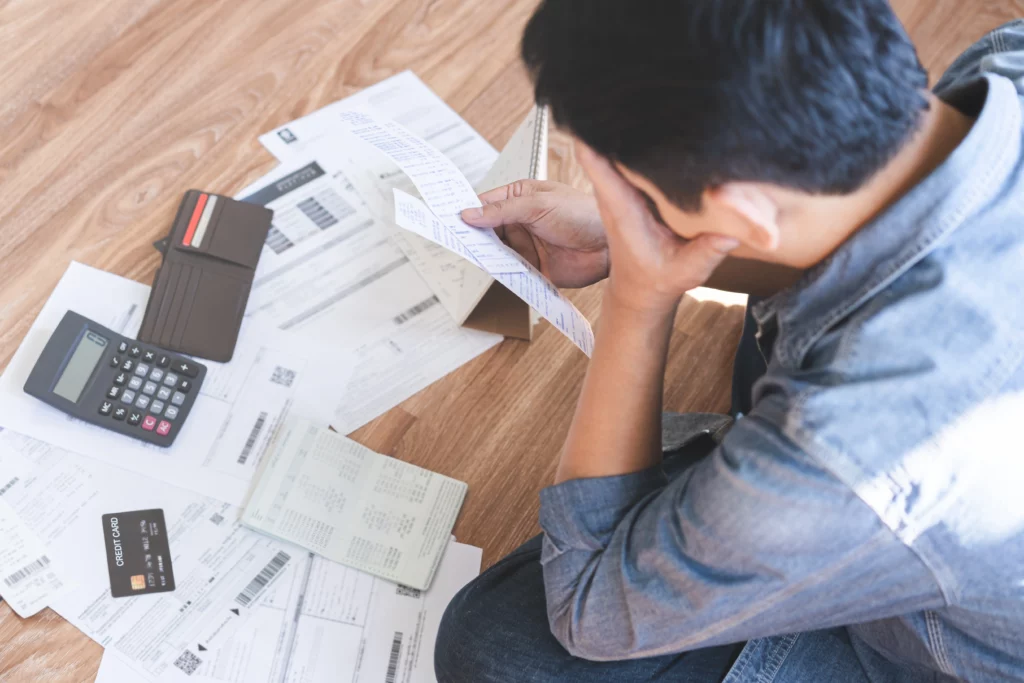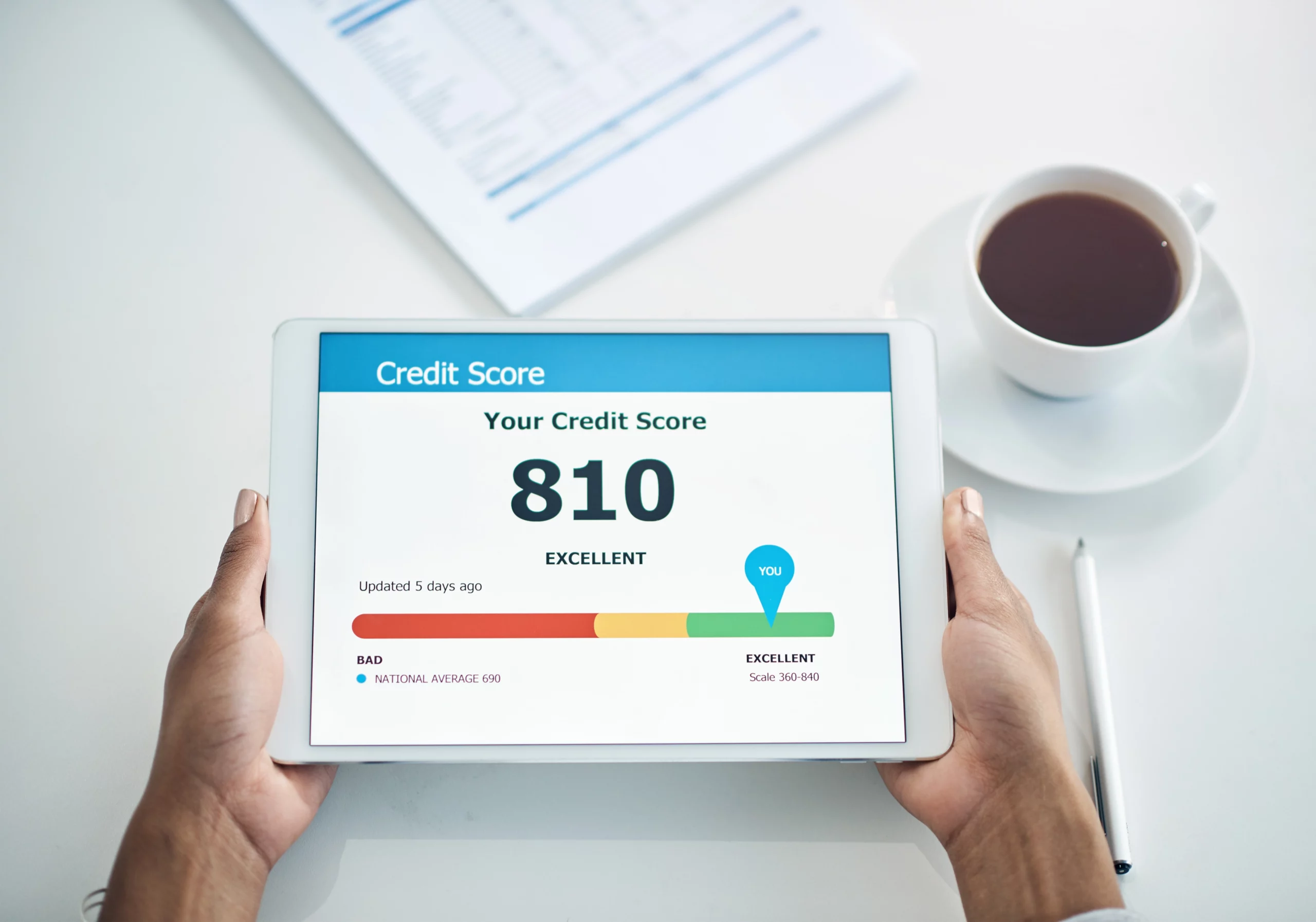- What is debt consolidation?
- Types of debt consolidation
- What does debt consolidation do to your credit score?
- Debt consolidation alternatives
Are you stuck with more debts than you can afford to pay? You may be looking at debt consolidation as a potential option to take control of your finances once and for all. But how does debt consolidation work, and what does debt consolidation do to your credit score? It has the potential to hurt or help your score, depending on how diligent you are with repayments. In this comprehensive guide, we’ve outlined the pros and cons, plus some alternatives to debt consolidation.
What is debt consolidation?

Financial debt is a reality for most Australians. Most people with multiple debts face the prospect of keeping track of many different repayment schedules and amounts.
Debt consolidation is a way of combining your existing debts, such as credit cards or personal loans, into one manageable loan. It’s a way to streamline your debts into one monthly repayment, so you’re less likely to incur late fees from missed payments. They can even save you money in the long run if you qualify for a debt consolidation loan with a lower interest rate than the ones on your current debts.
Types of debt consolidation
Before we consider the advantages and disadvantages of debt consolidation, as well as its impact on your credit score, we need to go over the different types of debt consolidation that exist. There are several ways you can consolidate your debts. They include:
- Debt consolidation loans: Getting a debt consolidation loan is one of the easiest options to combine multiple debts into a single loan, with a structured payment plan. For people who have multiple high-interest payments, this can potentially lower your interest rates.
- Credit cards: Getting a new credit card is another way to consolidate all your debts. You can apply for a balance transfer card and get all your existing debts transferred to the new card, sometimes at a lower interest rate. However, make sure you read the terms and conditions, as these cards can sometimes incur balance transfer fees and higher interest rates as opposed to debt consolidation loans.
- Home equity loan: A home equity loan or a home line of credit can be used to consolidate your debt. However, this is a type of secured loan that uses your home as collateral, so you must be prepared to complete all your payments on time.
What does debt consolidation do to your credit score?
Like all forms of credit, debt consolidation can have a negative or positive impact on your credit score. When you apply for a debt consolidation loan, a hard credit check can temporarily drop your credit score. But as long as you manage your loan responsibly and make repayments on time, this should only be a temporary drop.
Below we’ve outlined some positive and negative affects a debt consolidation loan can have on your credit score.
| Positives | Negatives |
| Builds a history of on-time repayments | Hard credit check will cause temporary drop |
| Lowers the chance of missed repayments | Can shorten the length of your credit history |
| Reduced credit utilisation ratio | Doesn’t solve root cause of debt |
The potential negative effects on your credit score are mostly short-term. By responsibly managing your debt consolidation loan, you could see long-term benefits, like paying off your debt sooner and an increase in your credit score.
But there are some factors other than your credit score you should take into account before deciding whether a debt consolidation loan is right for you.
What is a debt consolidation loan?
A debt consolidation loan is a type of personal loan that you use to pay off other debts. It’s a way to save on annual fees and multiple interest charges, as well as reducing the chance of missing payments by combining them into one regular repayment.
Debt consolidation vs personal loan
Every debt consolidation loan is a personal loan, but not all personal loans are debt consolidation loans. A personal loan can be used to pay for anything like emergency bills, car repairs, or even a holiday. What makes a personal loan a debt consolidation is your decision to use it to pay off your debts.
Pros and cons of a debt consolidation loan

Every person’s financial situation is different, and there’s no one-size-fits-all approach to managing debt. We’ve outlined some pros and cons to help you figure out whether a debt consolidation loan is right for you.
Pros of debt consolidation
- Less stress: gives you some relief by putting all your existing debts into one online loan with a single interest rate and payment schedule.
- Lower interest rate: A debt consolidation loan can lower the overall interest rate of your debts with a low-interest loan or zero-interest rate credit card (this is usually only valid for an introductory period)
- Customised payment schedule: you can choose recurring weekly, fortnightly, or monthly payments that line up with your pay schedule to avoid being caught short
- Pay off debts sooner: a customised payment schedule means you could pay your debt off sooner
- Increase in credit score: through consistent on-time payments, you will begin to see your credit score rise.
Cons of debt consolidation
- Costly fees: in consolidating your debts, you may incur some fees. These can include balance transfer fees, closing fees, and loan origin fees.
- Higher interest rate: You may not be able to get a lower interest rate, especially if your credit score is quite low.
- Risk of losing assets: If an unsecured loan isn’t an option, you may have to opt for a secured loan using something of high value for collateral. This could be a car or a house, which you might not feel comfortable losing if you can’t make repayments.
- Potential costs over time: If you get a consolidation loan with a longer repayment period, you may incur higher costs over time.
- Not a complete solution: a debt consolidation loan is a way of managing existing debt, but it doesn’t solve the root cause of accumulating debt, such as poor budgeting or overspending.
If you’re still not sure whether a debt consolidation loan is the right solution for your circumstances, the National Debt Helpline is a great resource to consult. There you can access free, confidential financial counselling to help you get back on track.
Debt consolidation alternatives

If you’re looking for alternatives to debt consolidation loans, there are some options.
Negotiate payment terms
Sometimes life throws you an unavailable curveball, and you might not be able to meet all your repayments in a particular month. If you’ve fallen behind, try calling your creditors and explaining your situation. Most organisations will work with you to negotiate an arrangement you can afford to pay, rather than ignoring the problem until it snowballs out of control.
Debt management plans
A debt management plan is an agreement between debtors, creditors and a debt management firm, which allows you to pay off all your debts at a rate you can afford. If you are wary about taking out a new loan, this may be a suitable option. However, you may lose the ability to open new credit accounts during this time.
Bankruptcy
Bankruptcy is a last resort step when debts become completely unmanageable. Although filing for bankruptcy helps to reduce or eliminate your finances, it can have serious long-term impacts on your credit score. It can stay on your credit history for up to 7 years, which will make it difficult to open new credit accounts. You should consult a financial advisor before considering this option.
Consolidate your debt with Red Tree Finance
Now that you know what debt consolidation can do to your credit score, you can soundly make the right decision for your circumstances. At Red Tree Finance, we understand the importance of a good credit history and are here to help you navigate through the process. With our online debt consolidation loans, you can regain control of your finances and take a step towards improving your creditworthiness.
Don’t let debt hold you back any longer! Contact the experienced team of loan assessors at Red Tree Finance today and discover how a debt consolidation loan can lead you to a brighter financial future.
Frequently Asked Questions
Does debt consolidation improve your credit score?
A debt consolidation loan can actually raise your credit score over time, as long as you have completed your payments on time. You may see a decrease in your credit score at first, however in time this can improve.
Is debt consolidation a good idea?
If you have multiple debts that you cannot afford to pay and struggle to keep track of, a debt consolidation loan may be the best option for you. This will combine your debts into one easy and manageable payment system, which may actually come with a lower interest rate than all your debt payments beforehand.
Can I still use my credit card after debt consolidation?
In some cases, your credit cards will close during the term of your debt consolidation plan. However, if your account remains in good standing after you have paid your debts, you can still use them. It’s always important to remember that credit cards may be the reason you have stumbled into this financial situation in the first place. So it’s important to implement some smart budgeting tips to prevent more debt in the future.
People also read:
- How Much Debt Does The Average Australian Have?
- How To Save Money Fast On A Low Income – 10 Ways
- How Much Do You Need For An Emergency Fund?
The information provided in this blog is of a general nature and is provided without considering your specific objectives, financial situation, or needs. It is intended for informational purposes only and should not be relied upon as financial, investment, or other professional advice.
Before making any financial decisions or taking action based on the information presented, you are strongly encouraged to assess its appropriateness in light of your individual circumstances. Red Tree Finance does not intend to provide personalised financial advice, and you should seek independent financial, legal, tax, and other relevant advice tailored to your unique situation.
Red Tree Finance Blog
Ready to apply for a loan?
Apply to borrow up to $5,000 fast. Complete the online application in less than 5 minutes.
Apply Now





